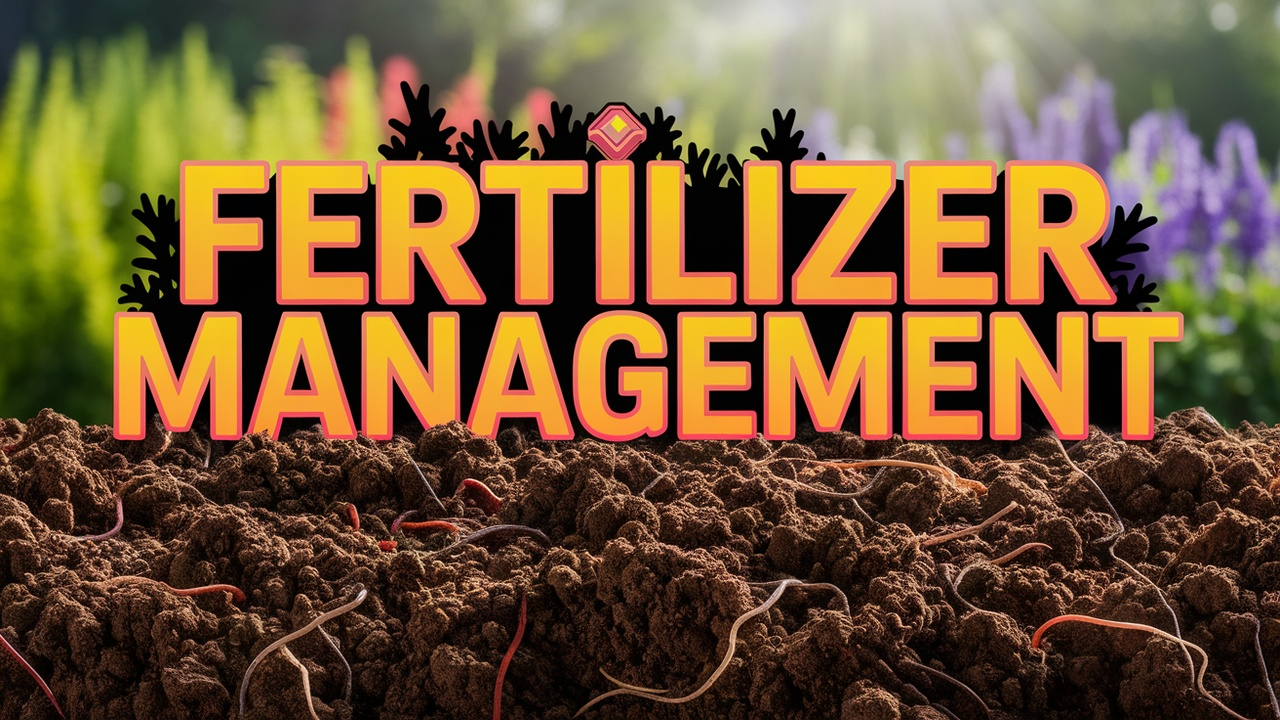
This comprehensive course explores the principles of soil fertility and effective fertilizer management practices. Participants will learn about soil composition, nutrient cycles, and strategies for optimizing crop yield through sustainable fertilization techniques.
Course Levels
-
Level 1: Introduction to Soil Science
This level covers the basics of soil science, including soil formation, types, and properties.
-
Level 2: Understanding Soil Fertility
This level focuses on the definition of soil fertility, essential nutrients, and their roles in plant growth.
-
Level 3: Fertilizer Types and Their Use
This level introduces various types of fertilizers, their compositions, and application methods.
-
Level 4: Advanced Fertilizer Management
This level covers advanced concepts in fertilizer management, including precision agriculture and nutrient management plans.
-
Level 5: Sustainable Practices in Fertilizer Management
This level emphasizes sustainable practices and innovations in soil fertility and fertilizer management.
-
Level 6: Practical Application and Case Studies
This level includes practical applications and real-world case studies in soil fertility and fertilizer management.
Course Topics
-
Topic 3: Case Study: Fertilizer Management in Different Regions
# Case Study: Fertilizer Management in Different Regions ## Introduction Fertilizer management is critical in optimizing crop yields while minimizing environmental impact. Different regions have uniq...
-
Topic 5: Calculating Fertilizer Rates
# Calculating Fertilizer Rates Fertilizer application is crucial for optimizing crop yield and ensuring soil fertility. To achieve the best results, it is essential to calculate the appropriate ferti...
-
Topic 2: Cover Crops and Their Benefits
# Cover Crops and Their Benefits Cover crops are an integral component of sustainable agricultural practices aimed at improving soil health, enhancing nutrient management, and promoting environmental...
-
Topic 1: Definition of Soil Fertility
# Definition of Soil Fertility Soil fertility is a fundamental concept in agriculture and environmental science, referring to the ability of soil to provide essential nutrients to plants in adequate ...
-
Topic 2: Essential Nutrients for Plants
# Essential Nutrients for Plants Plants require various nutrients to grow and thrive. These nutrients are categorized into two main groups: macronutrients and micronutrients. Understanding these esse...
-
Topic 4: Use of Biofertilizers
# Use of Biofertilizers Biofertilizers are natural fertilizers that enhance the fertility of soil by providing essential nutrients to plants through biological processes. Unlike chemical fertilizers,...
-
Topic 2: Interpreting Soil Test Results
# Interpreting Soil Test Results Understanding soil test results is crucial for effective soil fertility and fertilizer management. Soil tests provide insights into nutrient levels, pH, organic matte...
-
Topic 1: Developing a Fertility Management Plan
# Developing a Fertility Management Plan ## Introduction A fertility management plan is a structured approach to maintaining and enhancing soil fertility in agricultural practices. It involves assess...
-
Topic 4: Environmental Impact of Fertilizers
# Environmental Impact of Fertilizers Fertilizers are crucial in modern agriculture, enhancing soil fertility and crop yields. However, their use has significant environmental implications that must ...
-
Topic 4: Physical and Chemical Properties of Soil
# Physical and Chemical Properties of Soil Soil is a complex mixture of minerals, organic matter, air, and water. Understanding its physical and chemical properties is essential for effective soil ma...
-
Topic 1: Types of Fertilizers: Organic vs. Inorganic
# Types of Fertilizers: Organic vs. Inorganic Fertilizers are essential for enhancing soil fertility and ensuring optimal plant growth. They can be broadly categorized into two main types: **organic ...
-
Topic 1: Integrated Nutrient Management
# Integrated Nutrient Management Integrated Nutrient Management (INM) is a holistic approach to managing soil nutrients that combines organic and inorganic fertilizers to optimize crop yield and soil...
-
Topic 2: Macronutrients and Micronutrients
# Macronutrients and Micronutrients In the realm of soil fertility and fertilizer management, understanding macronutrients and micronutrients is crucial for optimizing plant growth and productivity. ...
-
Topic 5: Future Trends in Soil Fertility Management
# Future Trends in Soil Fertility Management Soil fertility management is evolving rapidly, driven by technological advancements, environmental concerns, and the need for sustainable agricultural pra...
-
Topic 5: Soil Biology and Microorganisms
# Soil Biology and Microorganisms Soil is not just a passive medium for plant growth; it is a vibrant ecosystem teeming with life. Understanding soil biology is essential for managing soil fertility ...
-
Topic 5: Soil Testing and Analysis Methods
# Soil Testing and Analysis Methods Soil testing is a fundamental practice for understanding soil fertility and managing soil health. It involves various methods of analysis that provide insights int...
-
Topic 4: Soil pH and Its Importance
# Understanding Soil pH Soil pH is a critical factor in determining soil fertility and plant health. It refers to the level of acidity or alkalinity in the soil, which can significantly impact nutrie...
-
Topic 2: Soil Formation Processes
# Soil Formation Processes Soil is not just a static entity; it is a dynamic medium that undergoes continuous changes and development through various processes. Understanding soil formation is essent...
-
Topic 2: Precision Agriculture Techniques
# Precision Agriculture Techniques Precision agriculture, also known as precision farming, is a modern farming management concept that uses information technology and various other tools to ensure th...
-
Topic 5: Innovations in Fertilizer Technology
# Innovations in Fertilizer Technology Fertilizer technology has evolved significantly over the years, driven by the need for sustainable agricultural practices and the increasing global food demand....
- And 10 more topics...